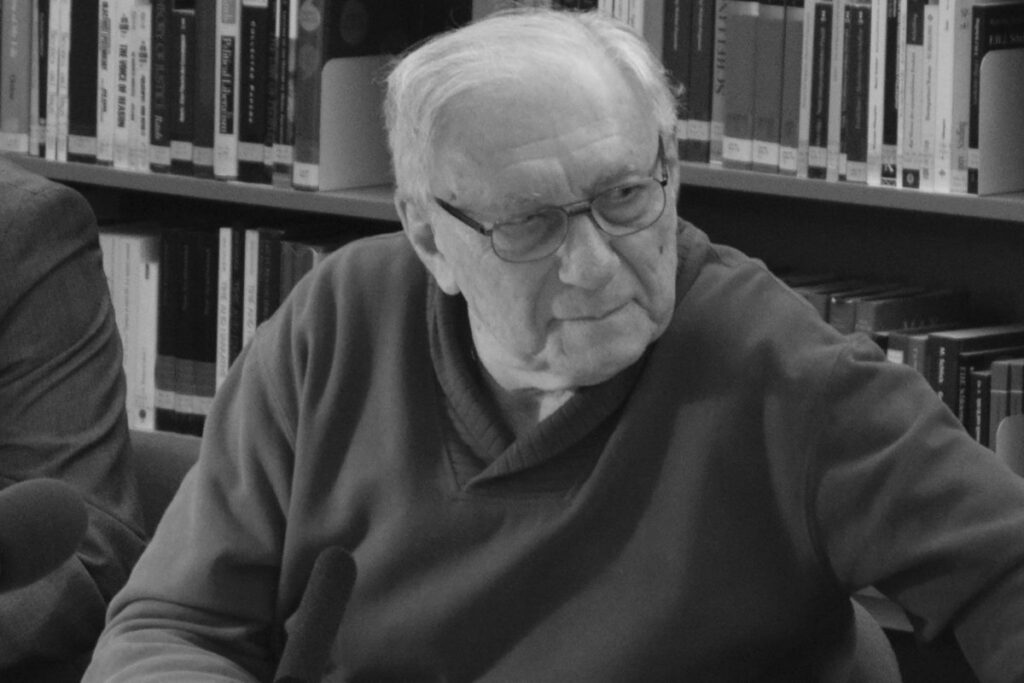Sadiq Jalal al-Azm (1934–2016), the Syrian Marxist who was professor of Modern European Philosophy at the University of Damascus from 1977 to 1999, and who died in December 2016. Arrested and then jailed for his book Naqd al-fikr al-dini (Critique of Religious Thought) when it was published in 1969, much of his work remains banned in the Arab countries.
Here’s a short excerpt from an interview he gave al-Jumhuriya in April 2013. It outlines his views on the ‘class’ base of the Syrian revolution. The first of the two links below is to the whole of this interview. The second is to a fascinating talk al-Azm gave to LSE’s Middle East Centre in November 2011 where he describes what he calls ‘the fierce struggle going on over the definition of Islam and over the control of the meaning of Islam’, distinguishing 3 major tendencies: Official State Islam, insurrectional Islam, and ‘middle-class commercial Islam’.
Al-Jumhuriya asked him:
Is there an implicit class struggle in the Syrian revolution? How does it meet or oppose the sectarian dimension which pervades the revolution’s journalistic and cultural discourse?
“Yes, there is a dimension of class struggle in the Syrian Revolution which does not exclude its religious-sectarian dimension. However, we should not take the issue of class struggle in its classical European-Marxist meaning whereby, on the one hand, the industrial proletariat and the working class in general face, on the other hand, a bourgeois class that owns the means of production and monopolizes surplus value. The closest to our reality is the class struggle as identified and explained by Frantz Fanon in his well-known book The Wretched of The Earth, and it is useful to return to it today for any attempt at diagnosing the Syrian revolution and understanding its nature, especially given that Fanon was a real pioneer in describing the mechanisms and the stages of transformation of political powers, parties, and organizations that start as parties and national liberation movements in oppressed third world societies but change into a clique of rulers completely separated from their beginnings, their popular foundations, and their liberal programs that they had adopted which formed the purpose for their coming to power, only for them to oppress and step on the neck of the wretched of their population; they then, inevitably, move towards glorifying the sole leader who rises from their ranks and raise his personhood above the level of humanity, earth and country leading to his deification. This is conducted in the name of safeguarding against the monopolization of wealth and power along with what accompanies them from privileges, gains and narrow class and factional interests at the expense of the rest of the population of the country. The class struggle present in Syria is of this nature whereby Syria’s “Wretched of the Earth” are participating in a revolution against a government, a party, and an authoritarian financial-military junta, and against a “nationalist” leadership of divine eternality.”
http://aljumhuriya.net/…/the-role-o…/interview-with-dr-sadiq
http://www.lse.ac.uk/…/transcripts/20111130_1830_arabNation…
by Jairus Banaji

